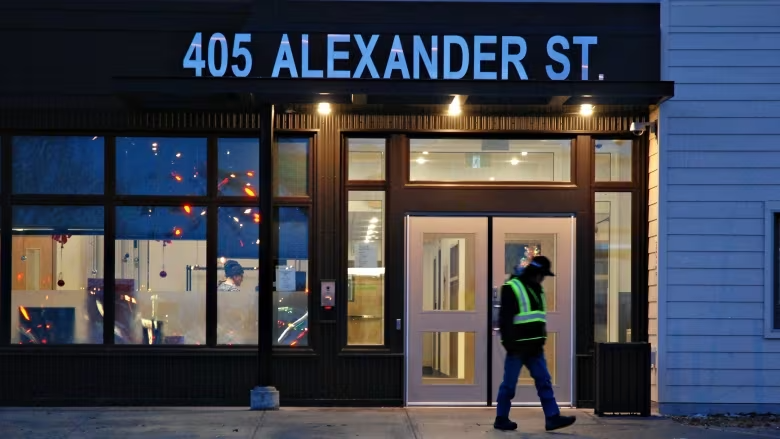Former manager of Whitehorse shelter questioned at inquest on low-barrier approach

‘People are able to come and not be turned away because they are using substances,’ says Jayme Curtis
The former manager of the Whitehorse emergency shelter was questioned about the facility’s policies at a coroner’s inquest into the deaths of four women in 2022 and 2023.
Jayme Curtis testified on Wednesday about the shelter’s low-barrier approach to serving clients and described how there were “expectations” rather than rules for staff to follow, when it came to monitoring guests or dealing with people who may be using substances.
“The intent is … people are able to come and not be turned away because they are using substances,” Curtis told the jury and presiding coroner.
“We did not search people … people’s bags, but the expectation was that they didn’t have [drugs and alcohol] … using it inside the shelter.”
144 overdoses happened at the shelter between 2020 and 2022
Meanwhile, testimony at the inquest revealed that at least 144 overdoses happened at the shelter between 2020 and 2022. And that at least three were fatal, including Cassandra Warville and Myranda Tizya-Charlie, on Jan. 19, 2022.
Curtis’s testimony came on the third day of the inquest in Whitehorse. So far, the inquest has been focused on the circumstances around the deaths of Warville and Tizya-Charlie.
Their deaths had already been confirmed by the Yukon’s chief coroner to be the result of toxic illicit drugs.
The inquest jury earlier heard from several staff members who were working at the shelter that night. They described how one of the shower rooms had been unlocked by a staff for the two women to go in together, only to be discovered hours later, unconscious.
The staff members described how there were no clear policies or training to monitor for overdoses or intoxicated guests, nor for how often to check on guests. All said the only training they received was basic CPR and how to administer naloxone — medicine that rapidly reverses an opioid overdose.
Testifying on Wednesday, Curtis said the shelter’s low-barrier ethos meant offering a non-judgmental space that respects people’s privacy. For example, he said the facility’s intake form does not ask guests about substance use, and while guests are asked to not bring drugs or alcohol to the shelter, they are never searched.
The reviewing of the video surveillance cameras was also under scrutiny as well as policy over how to assist guests.
Scheduled to take three weeks
A representative of the Vuntut Gwitchin First Nation, which Warville and Tizya-Charlie were members of, asked if Curtis was aware that two guests had knocked at the door of the shower room where the women were, only a few minutes after they went in. This was caught on surveillance camera and introduced during the inquest.
The presiding coroner and jury also heard an audio tape from one of the guests who knocked at the shower room’s door, claiming that after getting no answers from the women, she told the front desk staff to go check on them. Nobody, however, checked on the women for several hours.
Curtis testified he didn’t remember whether an employee said they had received that information. He said there was no procedure on how to assist guest’s requests, but that it would have been an “expectation” to respond.
The inquest, scheduled to take three weeks, has been an emotional experience for many family members and friends of the deceased women. On Wednesday, proceedings were interrupted several times as spectators shouted out or cried in response to some of the testimony.
In the coming days, the inquest is expected to also focus on the deaths of two more women.
Josephine Elizabeth Hager, 38, was reported dead in February 2023, and Darla Skookum, 52, was reported dead in April 2023.
While the territory’s chief coroner had earlier said that Warville and Tizya-Charlie’s deaths were related to illicit drugs, she had not released any details ahead of the inquest about how either Hager or Skookum died.
However, Skookum’s death happened during a particularly grim week in Yukon, when the coroner reported four deaths — all of which appeared related to substance use — that happened in as many days.
The Yukon government says additional counselling supports will be available during the inquest.
In-person and virtual rapid access counselling appointments can be made by calling 867-456-3838, or toll-free at 1-866-456-3838. In-person counselling will be available in Whitehorse, as well as in Carmacks from April 17-19 and April 22-23, and Pelly Crossing from April 10-12.
With files from Virginie Ann
Related stories from around the North:
Canada: Nunavik, Nunavut and Ottawa to get shelters for Inuit women, Eye on the Arctic



